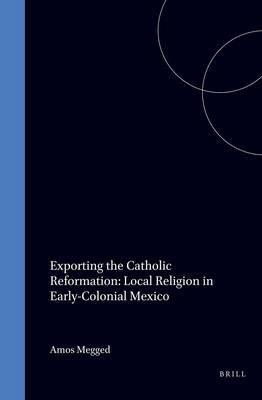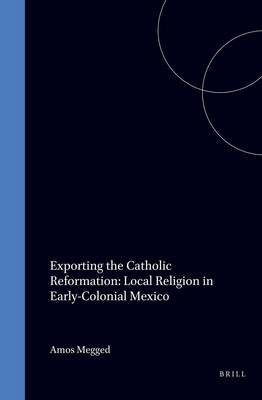
- Retrait gratuit dans votre magasin Club
- 7.000.000 titres dans notre catalogue
- Payer en toute sécurité
- Toujours un magasin près de chez vous
- Retrait gratuit dans votre magasin Club
- 7.000.0000 titres dans notre catalogue
- Payer en toute sécurité
- Toujours un magasin près de chez vous
236,95 €
+ 473 points
Description
This study introduces a novel, cultural interpretation to the overall impact of the Catholic Reformation in Europe on the changing facets of the religious life in the indigenous communities of southern Mexico, during the sixteenth and seventeenth centuries.
It examines the modes by which Spanish mendicant priests translated norms, standards and mores enforced by the Tridentine dogma into the far-removed contexts of the New World. Using a rich variety of both Spanish and Maya colonial sources it closely examines Dominican preaching, local cosmology, and the state of faith in the area, as well as the changing ritual practices that emerged within the Indian parish during this era. Moreover, it vividly illustrates how the Indians adopted, transformed, or rebuffed the Catholic notions impressed upon them in the process of religious conversion.
The study is characterized by a profound sympathy with and respect for the local Maya and their resourcefulness in negotiating the cultural politics of colonial domination. Rather than seeing Christian evangelization as a wholly one-sided process, Megged emphasizes the active role of the Indian populations in reformulating alien doctrines and rituals within native frameworks.
The study also draws on a substantial body of secondary works on contemporary developments in Europe, and among its innovative tenets is that New World evangelization was not a wholly separate but an integral aspect of the Catholic Reformation that proceeded in an interactive fashion on both sides of the Atlantic.
It examines the modes by which Spanish mendicant priests translated norms, standards and mores enforced by the Tridentine dogma into the far-removed contexts of the New World. Using a rich variety of both Spanish and Maya colonial sources it closely examines Dominican preaching, local cosmology, and the state of faith in the area, as well as the changing ritual practices that emerged within the Indian parish during this era. Moreover, it vividly illustrates how the Indians adopted, transformed, or rebuffed the Catholic notions impressed upon them in the process of religious conversion.
The study is characterized by a profound sympathy with and respect for the local Maya and their resourcefulness in negotiating the cultural politics of colonial domination. Rather than seeing Christian evangelization as a wholly one-sided process, Megged emphasizes the active role of the Indian populations in reformulating alien doctrines and rituals within native frameworks.
The study also draws on a substantial body of secondary works on contemporary developments in Europe, and among its innovative tenets is that New World evangelization was not a wholly separate but an integral aspect of the Catholic Reformation that proceeded in an interactive fashion on both sides of the Atlantic.
Spécifications
Parties prenantes
- Auteur(s) :
- Editeur:
Contenu
- Nombre de pages :
- 191
- Langue:
- Anglais
- Collection :
- Tome:
- n° 2
Caractéristiques
- EAN:
- 9789004104006
- Date de parution :
- 01-07-96
- Format:
- Livre relié
- Format numérique:
- Genaaid
- Dimensions :
- 241 mm x 164 mm
- Poids :
- 453 g

Les avis
Nous publions uniquement les avis qui respectent les conditions requises. Consultez nos conditions pour les avis.






